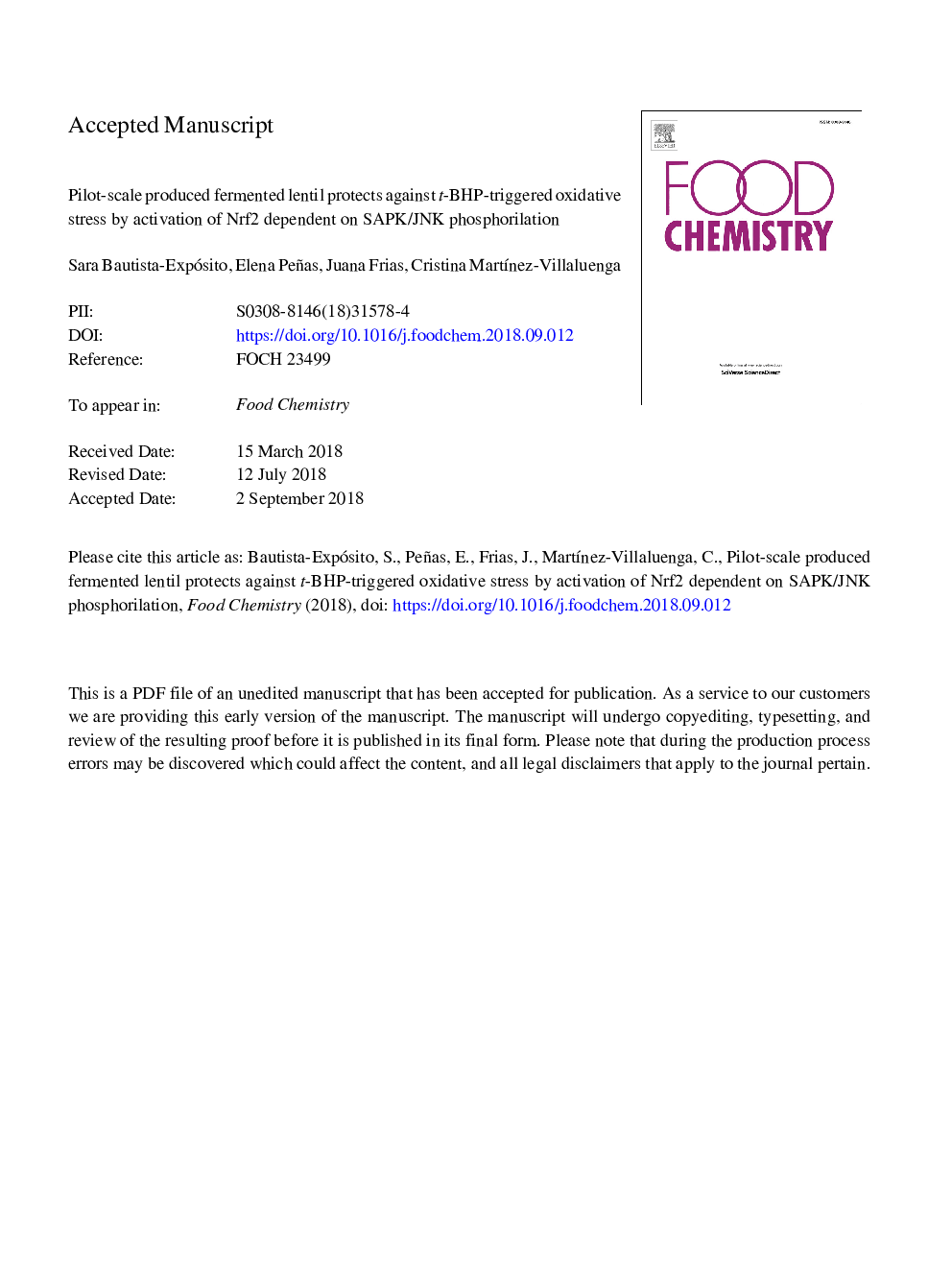| Article ID | Journal | Published Year | Pages | File Type |
|---|---|---|---|---|
| 10140874 | Food Chemistry | 2019 | 16 Pages |
Abstract
Fermented lentil (FL) produced using L. plantarum and Savinase in alkaline conditions relieves metabolic alterations and oxidative stress in Zucker rats with metabolic syndrome. Here, we investigated the effect of up scaling the fermentation process on chemical composition and biological activity of FL. Moreover, we studied the molecular mechanisms by which FL exert a cytoprotective effect against oxidative stress in tert-butyl hydroperoxide (t-BHP)-challenged RAW264.7 macrophages. Up-scale production reduced overall biological effectiveness of FL with the exception of inhibition of intracellular ROS generation. FL prevented t-BHP-induced cytotoxicity and intracellular accumulation of reactive oxygen species through activation of catalase expression via SAPK/JNK phosphorylation and Nrf2 nuclear translocation. Different oligopeptides, phenolic acids and flavonols were identified as contributors of the observed effects. To the best of our knowledge, we reported for the first time that FL attenuates oxidative stress cellular damage via activation of SAPK/JNK phosphorylation, Nrf2 nuclear translocation and antioxidant enzymes expression.
Keywords
ACECu-Zn superoxide dismutaseNfr2NAFLDSOD-1SAPKFLDDCFDATBSTdichlorofluoresceinTFAHRPNrf2ACNDcfPVDFPBSDMEMORACJnkFBSROSt-BHPAngiotensin I converting enzymeAcetonitrileTrifluoroacetic acidFormic acidPhenolic compoundsOxidative stressdichlorofluorescein diacetatefetal bovine serumMetabolic syndromeoxygen radical absorbance capacityLentilantioxidant response elementphosphate buffer salineMETSAREtert-butyl hydroperoxidehorse radish peroxidasePolyvinylidene fluoridePeptidesJun amino-terminal kinasestress-activated protein kinasesDigestionReactive oxygen species
Related Topics
Physical Sciences and Engineering
Chemistry
Analytical Chemistry
Authors
Sara Bautista-Expósito, Elena Peñas, Juana Frias, Cristina MartÃnez-Villaluenga,
